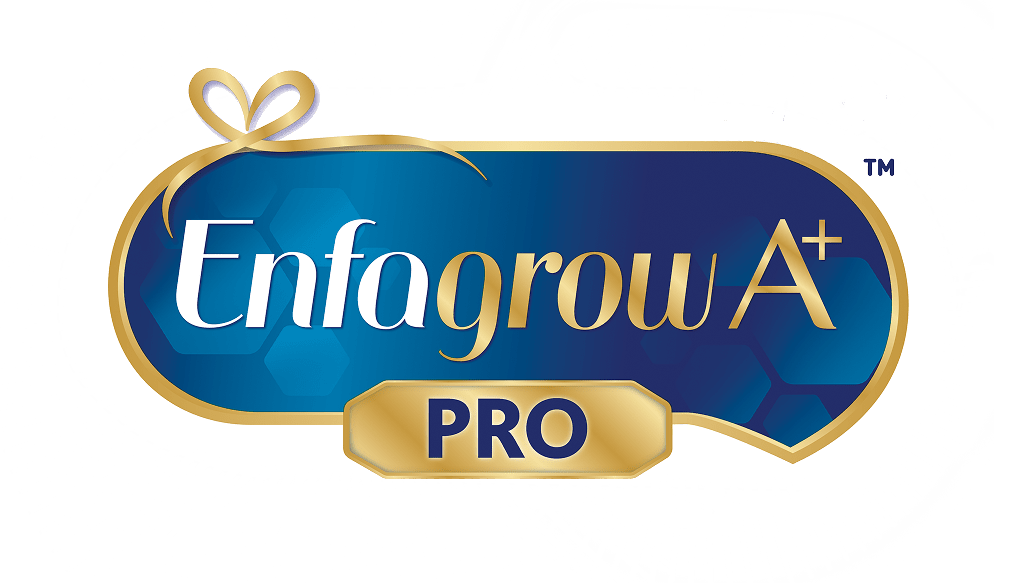

Why socialization is key starting at age 3.
If it seems like your kid picks up a new skill every time you turn around to check on them, you’re not entirely mistaken. Children in their preschool years are in a period of extremely rapid brain development, fed by two simultaneous processes: “synaptogenesis” and “myelination.”
Synaptogenesis links neurons together into sophisticated networks through the creation of new synapses in the brain. Meanwhile, myelination sheathes the nerves in a fatty, protective coating that enables faster transmission of brain signals.
The elaborate, increasingly efficient network that results allows for speedy communication between various regions of the brain. This makes your child ever more ready and eager to learn anything and everything, from a new word to a new song to a new concept about how the universe works.
Here are some of the ways you may see brain development displayed in your child right now.

Child Brain Development: Cognitive Skills
Children’s brains grow in a preprogrammed, bottom-to-top sequence, from the brainstem, which controls the most basic bodily functions, to the cortex, which governs the most complex thinking.
Experts agree that there are critical periods in brain development during which young children are especially sensitive to the environment (which includes everything from getting the proper stimulation to getting the proper nutrition) for learning. From there, cognitive advancements are a matter of stimulating the neurons and their connections, which strengthens them and broadens their functionality.
While most children aren’t reading by the age of 5, between 3 and 5 they are learning to recognize letters and associate them with sounds. Showing your child the ABCs while saying the letters aloud requires him to use at least three different areas of the cortex to process that information.
Specifically, the visual cortex sorts out the symbols your child’s eye sees. An area called the angular gyrus associates those symbols with the sounds of the letters. Meanwhile, the Wernicke’s area is where the connection to understanding is made.
Child Brain Development: Motor Skills
As your child grows more agile—running, jumping, climbing, and learning to perform ever more complicated feats—his brain continues to hone the processes that are key to balance and coordination.
During the preschool years, your child develops executive functions, which control memory, timing, and sequencing. These abilities are essential for more complex physical activities, such as riding a bike and throwing and catching a ball. Repetition is key toward this advancement; neural connections are strengthened through the repeated and continuous use of both large- and small-muscle movements. You’ll see this progress for yourself once your child practices activities like walking backwards, skipping, and hopping on one foot.
At this age, fine motor skills also become more important, as your child learns to write, draw, build, and create in ways that require his hands to do exactly what his brain tells them to.
Child Brain Development: Communication Skills
Ever wonder why it’s difficult to distinguish and understand sounds and syllables that aren’t used in your native language? Your child’s brain first forms the synaptic connections necessary to hear and produce all the sounds used by all languages around the world. But with use and disuse, these connections either become strengthened or are pruned away to favor those he hears and uses in his native language.
As time goes on, you’ll see a change in your child’s ability to distinguish between the language, or languages, spoken around him and those that are unfamiliar. In the early years, a child reacts to all spoken language, and by the preschool years, a child is engaged when he understands what’s being spoken, but he may ignore or appear confused by foreign tongues.
Your child’s communication skills take a quantum leap during these years. He becomes a much better listener and responds more readily when spoken to. It’s not just that his sentences are getting longer and more complex; he can follow directions with more than one step, for example, and he can describe a sequence of events in relative order. He’s even beginning to think out loud and talk though situations and feelings.
Child Brain Development: Emotional Skills
The “use it or lose it” rule of brain development is key to understanding your preschooler’s progress in socialization. Studies have shown dramatic differences between children who experience frequent interactions with parents and other caregivers, and children who are raised with less stimulation. Up to the age of 3, your child’s brain produces an excess of synaptic connections—many more than he will ultimately need. Social interactions reinforce the synaptic connections involved with language and other forms of communication and social expression, while those not used become weak and disappear with disuse. In this way, your child’s social environment literally shapes his brain, a process known as plasticity.
You will see similar changes in other areas of social interaction, particularly as your child begins to establish relationships with his peers. Between ages 3 and 5, fueled by the development of the cerebral cortex, your child goes from believing that everyone sees the world the same way to understanding that there can be multiple points of view. In fact, by about age 4, your child is well aware that what he wants to play with now (that toy train) may be in direct conflict with what another child wants (a stuffed animal). Much of this learning and understanding takes place through play, which experts stress is a complex series of skills that take time to develop. As your child begins to play with others, he’ll learn via trial and error to cooperate and negotiate with other children through sharing and taking turns.

Enrich Your Child’s Brain Development
Your child’s early development can be greatly enhanced by the following:
-
Travel - Travel is a multifaceted learning experience that can enhance both IQ and EQ through exposing your child to different people, places, and cultures that they can learn about. It gives them the opportunity to make wonderful and meaningful new memories at an early age. It can encourage patience, responsibility, and independence.1
-
Exercise - A fun, kid-friendly fitness regimen will nurture your child’s discipline, perseverance, and endurance. Not only will the exercise contribute to the development of their motor functions; it’s essential to their physical, mental, and psychological growth and wellbeing.
-
Playtime - Playtime is a chance for children to exercise their imagination and creativity. It’s also essential in developing their social skills.2 In their early years, your child learns to socialize by making new friends and playing with other children.
-
Singing - Encouraging your child to sing can build self-confidence and cultivate the skills for self-expression in a fun and creative way.3 It’s also an avenue for learning music and enriching their vocabulary and their reading and verbal capacities.
-
Nutrition - Nutrition is essential in boosting brain development. Among the essential nutrients your child needs is DHA. DHA is an important building block for brain and eye development for children up to 3 years old4,5. Make sure your child gets the nutrients they need, on top of providing them a holistic environment for learning and growing. Enfagrow Pro A+ contains a unique blend of nutrients to support your child’s overall mental and physical development, which includes MFGM, 360° DHA Plus, 2’-FL, and Prebiotic FOS.
Be part of the Enfamama A+ Club today to unlock a world of privileges and benefits which include free samples, exclusive vouchers, promotions, expert advice and many more!
References
- Why It's so Important for Kids to Travel, According to Experts. Travel and Leisure. Accessed November 1, 2021.
- Summertime, Playtime. Harvard Graduate School of Education. Accessed November 1, 2021.
- How Singing Stimulates Child Development. Become Singers. Accessed November 1, 2021.
- Veerman-Wauters et. al. Milk fat globule membrane enriched formula milk decreases febrile episodes and may improve behavioral regulation in young children, Retrieved from: https://www.sciencedirect.com/science/article/pii/S0899900711003741, 3 Sept 2020.
- Kuratko, C.N. et al. Nutrients. 2013;5(7):2777-2810.



